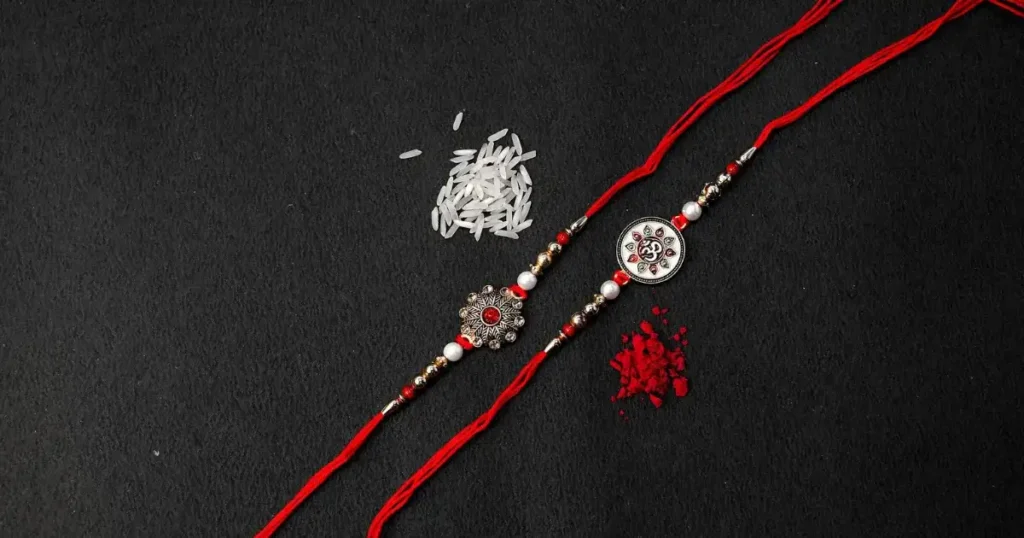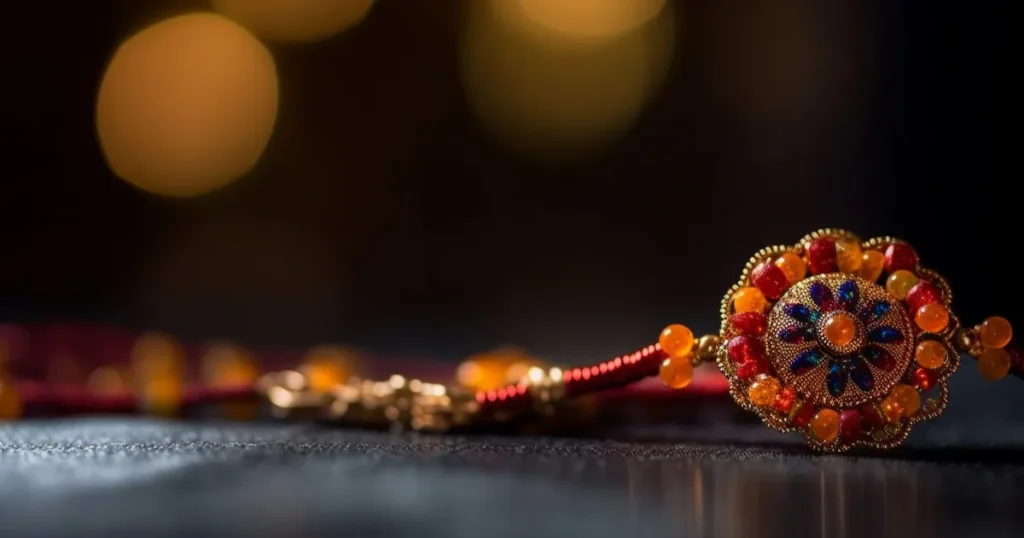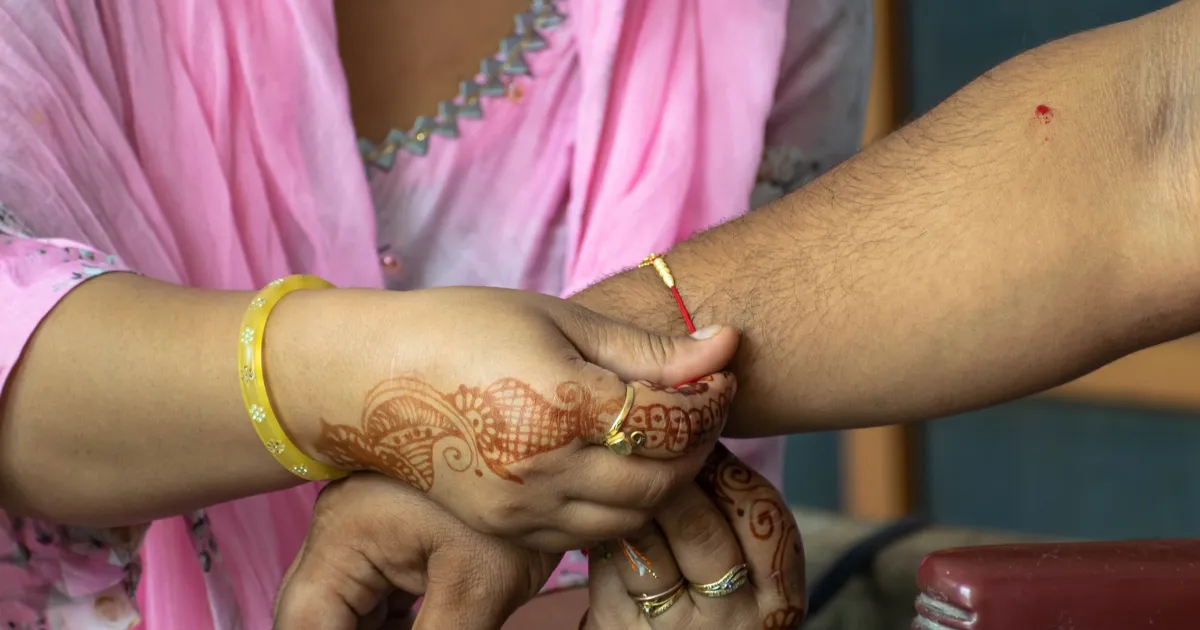Why Most Celebrate Punjab Sikhs avoid Raksha Bandhan
Explore the social, religious, and historical reasons most Sikhs in Punjab avoid Raksha Bandhan, contrasting tradition with contemporary realities.
Chandigarh, Punjab – Raksha Bandhan is one of India’s most beloved festivals, but in Punjab—a state known for its diversity and spirit—a large section of Sikhs traditionally avoid celebrating Raksha Bandhan. What are the reasons behind this avoidance? Where does this practice come from, and what are the ongoing conversations in Sikh and Punjabi communities about it? Here is a comprehensive, SEO-focused exploration of the cultural, spiritual, and historical reasons why Sikhs avoid Raksha Bandhan in Punjab.
What Is Raksha Bandhan and How Is It Seen in Punjab?
Raksha Bandhan, often called Rakhi, is a Hindu festival celebrated in August across India, symbolizing the protective bond between siblings. In Punjab, the streets come alive with colorful rakhis, sweets, and festive gatherings. Yet, there is a distinct trend—many Sikh families in Punjab choose not to participate in Raksha Bandhan rituals, setting them apart from their Hindu and some regional counterparts.
This divergence is not simply due to disinterest; it is grounded in Sikh religious philosophy, with significant voices in the Sikh community expressing that the festival doesn’t align with Sikh practices and teachings.

The origins of Raksha Bandhan are rooted in Hindu tradition, with rituals centering on the symbolic rakhi thread. But Sikhism, founded by Guru Nanak in the 15th century, was shaped in part as a departure from ritualistic ceremonies prevalent in Hinduism.
Sikh Gurus emphasized a direct connection with God (Waheguru) without the need for priests or rituals, and Guru Nanak explicitly rejected ritual threads like the janeu (sacred thread of Hindus). As such, most Sikh scholars argue that tying a rakhi holds no spiritual significance in Sikhism and is viewed as an unnecessary ritual.
“Festivals and ceremonies like Raksha Bandhan are for those whom they were made for. Sikhi is a completely distinct faith… Our Gurus did not include these rituals in Sikhi,” writes Lakhvir Singh, Sikh educator.
Equality Principle:
One core Sikh belief is gender equality. Sikh women are viewed as empowered and equal to men, both spiritually and socially. The notion that a sister must rely on a brother for protection, as implied by Raksha Bandhan, contradicts Sikh values where both men and women are seen as independent and self-sufficient in faith and life responsibilities.
“Why would a Kaur (Sikh woman) ever need anyone’s protection when she has the power within her? That is why if the Singh was given a Kirpan, so was a Kaur granted the same,” notes Sikh24 editorial, reflecting core teachings from Sikh scripture.
Religious Arguments — What Does Sikhism Actually Teach?
Sikh Rejection of Rituals:
Guru Nanak and subsequent Sikh Gurus openly resisted ritualism—rejecting not only the janeu but also other ceremonies that, to them, symbolized social inequality, superstition, or dependence on intermediaries. Sikh ceremonies revolve around readings from the Guru Granth Sahib (holy scripture) and the core values of equality and self-reliance.
Philosophy of Protection:
Rather than seeking physical protection from another person, Sikh philosophy teaches reliance on divine guidance and courage. The kara (iron bracelet) worn by all initiated Sikhs serves as a constant reminder of dedication and duty rather than protection from ritual threads or rituals imposed by society.
Dilution of Sikh Identity:
Some Sikh leaders and scholars express concern that adopting non-Sikh rituals—including Raksha Bandhan—threatens to dilute Sikh identity, especially in regions where community boundaries are already blurred.

Public Discussion — Is There Uniformity Among Sikhs?
While the avoidance of Raksha Bandhan is a common stance among orthodox Sikhs and Gurdwara committees, some modern Punjabi Sikh families do celebrate the festival, often citing cultural reasons or in mixed-faith families. Eleanor Nesbitt, a scholar of Sikhism, notes that “many contemporary Sikhs observe the annual bonding of brothers and sisters on the day of Rakhi.” Still, this practice is more a matter of family custom than the religious mainstream.
On online forums and community discussions, the response is diverse:
- Some argue for rejecting Raksha Bandhan on religious grounds.
- Others see no harm in using the day to strengthen sibling bonds, provided it is not treated as a religious ritual.
- A smaller group advocates for the adaptation of the festival into a broader “Sibling’s Day” with no ritualistic focus.
Unique Sikh Alternatives and Historical Incidents]
The Khalsa Army’s Rakhi:
Historically, the Khalsa Army in Punjab introduced the term “Rakhi” as a bond of protection—but here it referred to the army’s commitment to safeguard villages. Farmers would give a share of their crop to the Khalsa Army for their protection from external invaders. This practice was more of a social contract than a religious ritual and is sometimes cited to explain the evolution of the sibling-focused Raksha Bandhan in Punjab.
Also Read | What Is Sikhism? A Comprehensive Guide To The Sikh Faith
Maharani Jindan Kaur’s Rakhi:
In the 19th century, Maharani Jindan Kaur, widow of Maharaja Ranjit Singh, reportedly sent a rakhi to the King of Nepal to seek his support, further blending possibilities of cultural traditions and alliances. But such symbolic gestures are rare and don’t represent standard Sikh religious practice.
Current Attitudes in Punjab—Society, Faith, and Family Traditions
Among general Punjabis, Raksha Bandhan remains popular, with bustling markets and community events. However, in many Sikh-majority villages and among orthodox families, the festival is either ignored or replaced with prayers for equality and universal protection.
“Many Sikhs today recognize Raksha Bandhan as a cultural event but do not assign ritual importance to it. The focus remains on what the Sikh Gurus have taught in scripture,” says Professor Manjit Singh, Sikh Studies Scholar, Chandigarh.
Families with mixed religious backgrounds, such as interfaith marriages or neighboring Hindu communities, might blend rituals—tying rakhi, sharing sweets, but refraining from formal prayers or rituals outside Sikh tradition.
Critiques and Defenses—Modern Perspectives
Modern Sikh thinkers caution against judging families who observe Raksha Bandhan merely as a sign of affection, so long as it is not conflated with Sikh religious doctrine.
Also Read | Exclusive Top 10 Punjab Religious Places And Sacred!
Others point out that the essence of Sikhism—simran (meditative remembrance) and seva (selfless service)—is maintained through active support of the community year-round, without the need for ritual days or threads.
“No thread is required to remind Sikhs of their duty to protect others. Our Gurus empowered us with faith, equality, and courage, not ritual threads,” emphasizes Balbir Singh, community activist in Ludhiana.
FAQs – Sikhs and Raksha Bandhan
Why do Sikhs avoid Raksha Bandhan?
Orthodox Sikhs avoid Raksha Bandhan because it is seen as a Hindu ritual that doesn’t align with Sikh teachings, which reject ritualism and uphold gender equality.
Is Raksha Bandhan forbidden in Sikhism?
While not explicitly forbidden, Sikh scripture and historical practice discourage ritual ceremonies like Raksha Bandhan that conflict with Sikh philosophies of equality and direct connection to God.
Do any Sikhs celebrate Raksha Bandhan?
Some Sikhs, particularly in mixed-faith or modern families, celebrate Raksha Bandhan as a family or cultural event, usually omitting religious rituals.
What is the Sikh alternative to Raksha Bandhan?
Sikhism does not have a direct alternative, but the principles of mutual support, love, and protection are lived out daily through faith and community service.
What do Sikh Gurus say about rituals?
Sikh Gurus advocated for truthful living and unity with God, strictly discouraging rituals not endorsed by Gurbani. Guru Nanak notably rejected the janeu and similar practices.
As Punjab glows with festive lights today, the debate around Raksha Bandhan and Sikh identity continues to spark healthy conversation across generations and communities. By exploring why Sikhs avoid Raksha Bandhan, we gain insight into the enduring strength of Sikh values—self-reliance, equality, and spiritual devotion.
Whether you observe Raksha Bandhan or reflect on its roots, the heart of community remains in unity, respect, and understanding. As the Sikh community says, “Truth is high, but higher still is truthful living.” This August, let’s celebrate bonds and beliefs with open minds and mutual respect.
For more cultural news and expert commentary from Punjab, stay connected to local updates and diverse community voices.

